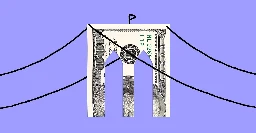Search
Guidlines for Posting
In the absence of a flair system on lemmy yet, let's try to make it easier to scan through posts by type in here by using tags:
- [meta] for discussions/suggestions about this community itself
- [article] for news articles
- [blog] for any blog-style content
- [video] for video resources
- [academic] for academic studies and sources
- [discussion] for text post questions, rants, and/or discussions
- [meme] for memes
- [image] for any non-meme images
- [misc] for anything that doesn't fall cleanly into any of the other categories
I have copied that idea from another community. I forgot which one so sorry!
Feel free to discuss that here, I would like that change because it makes it a lot easier
Ontario planning experts slam Ford's war on bike lanes
Opposition continues to pour in over Ontario Premier Doug Ford’s fight against bike lanes. The Ontario Professional Planners Institute (OPPI), with over 5,000 members, sent a letter to the government opposing new legislation that could remove bike lanes in Toronto or any other municipality.

cross-posted from: https://lemmy.ca/post/33453283
> >Basinski said space for bike lanes should not be viewed as contributing to congestion. “One lane of mixed traffic can move up to 2,000 passengers per hour in optimal conditions. However, a dedicated bike lane can move up to 12,000 passengers per hour,” the letter reads. > > > >”What problem is this (the proposed legislation) actually solving?” Basinski said. “If anything, it seems to move us backward, away from the common goal of creating complete, livable and sustainable communities that are accessible to all Ontarians, regardless of where they live.” > > >The City of Toronto estimates the cost to taxpayers for removing these bike lanes could reach $48 million, with the city already investing $27 million in their construction. Restoring vehicle lanes will likely offer minimal improvements in travel time and undermine the public health, environmental and economic benefits of active transportation, the report warns.
National Highways to stop using the word ‘accident’ in UK
National Highways move branded a ‘significant step forward’ in recognising the preventable nature of road collisions.
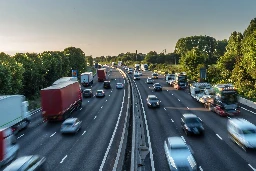
This is really a big step in my opinion, as language choices can shape opinions, as the article states "a ‘significant step forward’ in recognizing the preventable nature of road collisions."
Ford government to table legislation to restrict bike lanes on city streets | Globalnews.ca
The transportation minister will table the new bike lane rules as part of his next major piece of legislation, which the government has said will focus on stifling congestion.
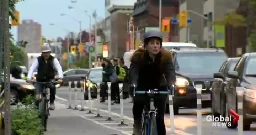
>The law, Global News has learned, is currently set to be titled the Reducing Gridlock and Saving You Time Act and could be presented when the legislature returns at the end of October. Primarily aimed at drivers, it will include new provincial requirements on bike lanes.
>...
>The specifics of the legislation have not been made public but sources told Global News said the government was considering restrictions on towns and cities removing existing lanes of traffic to create bike lanes.
Absolute clowns.
What to do about America’s killer cars
The country’s roads are nearly twice as dangerous as the rich-world average. It doesn’t have to be that way

THE NEXT time you are stuck in traffic, look around you. Not at the cars, but the passengers. If you are in America, the chances are that one in 75 of them will be killed by a car—most of those by someone else’s car. Wherever you may be, the folk cocooned in a giant SUV or pickup truck are likelier to survive a collision with another vehicle. But the weight of their machines has a cost, because it makes the roads more dangerous for everyone else. The Economist has found that, for every life the heaviest 1% of SUVs or trucks saves in America, more than a dozen lives are lost in smaller vehicles. This makes traffic jams an ethics class on wheels.
Each year cars kill roughly 40,000 people in America—and not just because it is a big place where people love to drive. The country’s roads are nearly twice as dangerous per mile driven as those in the rest of the rich world. Deaths there involving cars have increased over the past decade, despite the introduction of technology meant to make driving safer.
Weight is to blame. Using data for 7.5m crashes in 14 American states in 2013-23, we found that for every 10,000 crashes the heaviest vehicles kill 37 people in the other car, compared with 5.7 for cars of a median weight and just 2.6 for the lightest. The situation is getting worse. In 2023, 31% of new cars in America weighed over 5,000lb (2.27 tonnes), compared with 22% in 2018. The number of pedestrians killed by cars has almost doubled since 2010. Although a typical car is 25% lighter in Europe and 40% lighter in Japan, electrification will add weight there too, exacerbating the gap between the heaviest vehicles and the lightest.
Archive
https://archive.is/qnsl5
Malaysia to acquire trains via $3.18b leasing deal with China | The Straits Times
The government aims to acquire 62 new passenger train sets. Read more at straitstimes.com.

Waymo cars honk at each other throughout the night, disturbing SF neighbors
San Francisco resident Randol White says he heard the noises for the first time about two weeks ago -- he was woken up around 4 a.m. to the Waymos honking at each other.
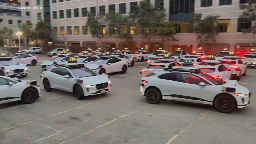
Japan is inventing trains
The Japanese government is planning to connect major cities with automated zero-emissions logistics links that can quietly and efficiently shift millions of tons of cargo, while getting tens of thousands of trucks off the road.

How traffic noise hurts children's brains | BBC News
As awareness grows of the toll noise has on children's health and learning, some cities show the way to quieter roads and classrooms.

Montreal becomes largest North American city to eliminate mandatory minimum parking spots
Montreal is the latest city to eliminate mandatory parking minimums, and the largest North American city to have done so.
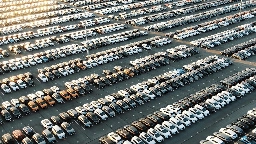
Build the greatest car parks ever in the Car Park Capital!
I feel like I just need to play Car Park Capital after discovering it today. Styled much like a late 90s retro tycoon game, it looks like it's from a different time and I love it.
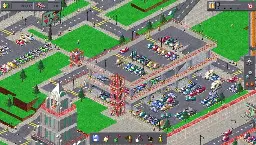
I think the developers of this satirical game could be subscribed to this community:
> The car industry has identified a few places on earth that do not know THE FREEDOM OF CAR DEPENDENCY.
> So they hired you to increase car sales and oil consumption.
> How? By building the greatest car parks ever!
> Turn neighborhoods into car parks, create the need for car commuting and parking. Use propaganda to inform people on why they need it.
> Learn to become a real tycoon.. Asphalt means freedom, right?
Cross-post da: https://feddit.it/post/8640086
In France, the Future Is Arriving on a Barge
The Seine is becoming a test case for a European plan to cut carbon emissions by turning rivers into the new highways.
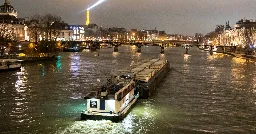
>The Seine is becoming a test case for a European plan to cut carbon emissions by turning rivers into the new highways.
New data shows which states were more deadly for pedestrians in 2023
Preliminary road-safety data for the first half of 2023 has been published.

Owning a car in Montreal costs an average of $1,310 per month
A study by personal finance service Hardbacon estimates the current average cost of owning a car in Montreal at $1,310 per month. Hardbacon’s compilation includes purchase price, maintenance, gas, parking and insurance. In 2024, the average cost of owning a vehicle in Quebec is $15,720 per year. A c...
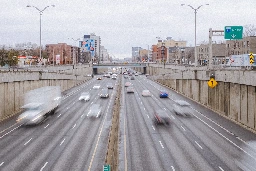
Nearly half of the U.S. population has diabetes or prediabetes—and many have no clue. Are you among them? | Fortune
All told, roughly half of the U.S. population has diabetes or its predecessor—and it's turning us into a nation burdened with illness, experts say.
Wonder if this shift corresponds to the age of automobiles
Why car insurance in America is actually too cheap.
Prices are rising, but most drivers still have paltry coverage
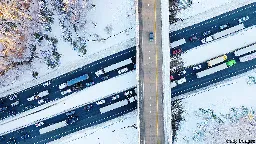
Dubai Metro Blue Line extension
All the information on the proposed new Dubai Metro Line...
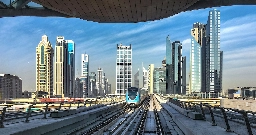
Looks like they plan to have the blue line extension ready to go in 2029 mentioned in the embedded video not the article.
The plan is to have 55% of the population within 800 meters of public transportation stations by 2040.
A little bit old, but I always like to watch the video linked below: Youtube - Dubai Progress by MetroCucumber
If I’m at a crosswalk, do drivers have to stop even if the lights aren’t flashing?
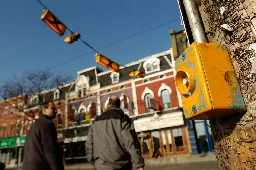
canada@lemmy.ca
Link with no paywall:
https://www.removepaywall.com/https:/www.theglobeandmail.com/drive/mobility/article-if-im-at-a-crosswalk-do-drivers-have-to-stop-even-if-the-lights-arent
Officer tickets TTC streetcar operator for blocking intersection
Toronto finally cracking down on cars blocking the box and causing dangerous situations for everyone especially pedestrians
Maybe Don’t Drive Into Manhattan | The Atlantic
> Next year, congestion pricing is coming to New York City. And maybe, just maybe, the toll for motor vehicles entering the lower half of Manhattan should be set at $100.
> That number comes from Charles Komanoff, an environmental activist, a transit analyst, and a local political fixture. It represents neither the amount that would maximize revenue nor the amount that would minimize traffic. Rather, it is an estimate of how much it really costs for a single vehicle to take a trip into the congestion zone—in economists’ terminology, the unpriced externality associated with driving into one of the most financially productive and eternally gridlocked places on Earth.
This number comes just from calculating the monetary value of the average delay incurred by each car's contribution to traffic, not even accounting for all the other negative externalities -- e.g., air pollution, sound pollution, injuries, deaths, etc. -- meaning this is probably a sever underestimate.
Non-paywall link: https://archive.ph/LSpi5
